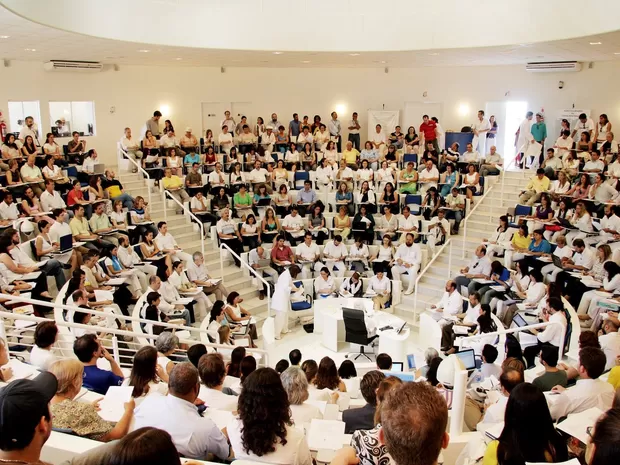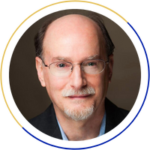Until the event
R$
580
in person
R$
370
online synchronous
- Connect to this Mega Event now!
- Receive all Congress updates in advance!


Hotel Interludium
Campus CEAEC
Foz do Iguaçu - PR
July 25ᵗʰ to 28ᵗʰ 2024
The 1st International Congress of Conscientiology is a scientific, suprainstitutional, and comprehensive event aimed at collective self-updating within the ICCC. It delves into the cosmovision of the scientificity practiced in research and methodologies across conscientiological specialties, while also serving as a platform for sharing with all interested participants.
Participants and speakers from various regions of the world convene to immerse themselves in the cosmovision of conscientiology.
More than 10 days of events, starting with the ECP3, workshops, and 4 days of Congress.

While our event does offer an online option, we warmly invite you to join us in person for this historic occasion!
The agenda for the 1st International Congress of Conscientiology features more than 24 workshops, each covering specialties from participating ICs. Click to explore further and register!

























Our keynote speakers will be presenting their research perspectives exclusively at the Conscienciology Congress.

Conscientiology has as one of its pillars self-research, which involves the study of consciousness, using techniques and instruments available in the consciousness microuniverse and in the Cosmos, acting as an observer, investigator, guinea-pig, agent, and participant in its own experiments aimed at self-evolution. Considering the importance of self-research in the consciential paradigm and the fundamental role of scientific production in the development of a science, self-research graphic gescons, qualified by self-scientificity, are logically relevant. Therefore, it is pertinent to expand knowledge about self-scientific gesconography and apply multispecialty analysis to the development of the cosmovision on the subject. In the case of self-scientific gesconography, analysis from the perspective of various conscientiological specialties highlights the evolutionary importance of the theorice in claritask writing of self-studies, whether through the potentiation of recins, or through interassistance. Additionally, it denotes the relevance of this type of gescon in multiexistential self-relay, in the groupkarmic process of building Conscientiology science, and in the beginning of polykarmic assistance.

The paper addresses the relevance of multidimensional research as a resource to compose and expand cognitive baggage with the potential to substantiate correctness in the exercise of evolutionary self-discernment. The author proposes 5 actions motivated by the possible effects of the association between discernment and evolutionary knowledge, 5 efforts implemented from possible effects of the association between research and evolutionary knowledge, and 5 aptitudes refined through possible effects of the association between discernment and research. The author proposes 33 distinctions to assist in the practice of evolutionary discernment in daily life, 11 results that can be obtained in thematic investigations, and recommends 7 cognitive sources for research. The text argues about the potentializing effects of self-evolution resulting from the combination of efforts in multidimensional research and the improvement of evolutionary discernment.

At the event, the researchers will present various topics related to personal research in the specialty of parareurbanology, conducted over 18 years in Europe, with highlights including:

The Encyclopaedia of Conscientiology (EC) stands at the forefront of the neoscience with its innovative scientific character, fueled continuously by the publication and presentation of distinct labcons. These form a unified and cohesive array of multidimensional self-research, embodying everything from the seasoned parascientificity of the group megagescon’s proposer to the nascent self-scientificity of the beginner intermissivist. In light of cosmovisiology, the diverse aspects or directions of conscienciological encyclopedism represent samples of the neo-scientific magnitude of the group megagescon of the International Cosmoethical Conscientiological Community (ICCC). Among the areas to be delved into are: reurbanological encyclopedism, a group maxiproexic movement in line with the interassistantial project of terrestrial reurbex aimed at planetary recexology; Theorical encyclopedism, a movement capturing neoparadigmatic understanding and the systematic, cosmovisiological distribution of theatical neo-knowledge; and holokarmic encyclopedism, an accumulation of neo-paradigmatic knowledge, recorded to facilitate or confirm egokarmic recycling, groupkarmic restoration, and the opening of the polykarmic account for verbetographers, all in support of the primacy of pancogniciology. Such dimensions of conscienciological encyclopedism can enhance the expansion of the work’s cosmovision, showcasing its broad interassistantial and multidimensional neoencyclopediographic reach.

This article delves into significant aspects of the group paratherapeutic movement of OIC volunteers in the creation of the Conscientiotherapy Dictionary (2022). The collective effort was marked by a continuous opportunity for conviviological learning, driven by the shared goal of realizing this consciential gestation, a result of the combined efforts, hands, parahands, and mentalsomas amidst debates and the introduction of neo-ideas by the research team. As noted on page 39 of the mentioned publication, “to overcome the numerous challenges of maintaining a verponological, harmonious holothosene, and of interdeintrudability, as well as to enhance the group gesconographic work,” “54 applied group conscientiotherapeuticographology techniques” were listed. About 50% of these techniques pertain to the verbal subtleties of interassistantial groupality, a primary challenge in the development of projects of this nature. The current work aims to timely and healthily share the conscientiotherapeuticographic experiences embedded within this theatical scenario.

The article discusses the paraepistemology of proexis science. While proexology is immediately recognized as a sector or domain within a broader field of knowledge – conscientiology –, even among its practitioners, operators, or scholars, there lacks a broader and deeper understanding of what constitutes a scientific specialty. Evidence for this assertion includes the limited systematization, detail, and discussion on a range of topics beyond the central object of proexis; on propositions, theories, and models beyond those automatically imported from the parent science; and on methodologies, techniques, and research resources, which, beyond matrix importation, are intuitively and customarily practised. Therefore, this research addressed the circumstance with the question, “How to understand Proexology?”. The search for a solution was based both on the perspective of the consciential paradigm and on the concept of discipline and interdisciplinarity proposed by historian José D’Assunção Barros. To this end, proexology was analysed from 10 aspects: 1. Object of study; 2. Singularity; 3. Theories; 4. Methodologies; 5. Discourse; 6. Segmentation; 7. Limitations; 8. Agents; 9. Self-awareness; 10. Location.

Revisiting the outcomes achieved with the cosmoethical paranormative-theatical model of the consciential neoparadigm, through the guiding thread of the holomemoriology specialty on self-research – the self-research of consciousness, the author presents a brief historical retrospective of four decades of parascientific contributions from the neosciences of projectiology and conscientiology (Vieira, 1981; 1986). Through systematic self-experimentation, the intraphysical consciousness (conscin) discovers the paramechanism of integral memory (holomemory), located in the parabrain, suggesting the prior and subsequent existence of the same human personality (seriexology). In this way, self-experimenters have crossed paradigmatic, chronological, and interdimensional barriers, uniting physical realities with pararealities. The self-convincing verifiability of altered states of consciousness (ASC) leads the self-parapsychic neoscientist to a definitive disruption regarding the pseudo-obscurity of the projective paraphenomena, introjecting the binomial expression self-consciousness research-self-research of consciousness. This evolutionary contribution finally unveils to the lucid conscin advanced autogenous tools for the self-investigation of intraconscientiality (inner self), towards the holomaturological metacognition of the consciential microuniverse. The parafacts guide the self-researches.

The lecture will address the importance of verpons in the constitution of the conscientiology neoscience from both cognitive (paraepistemology) and interassistantial (deintrusionology) perspectives, as well as from an evolutionary (paraprospetivology) viewpoint. To this end, theoretical and practical elements of analysis will be presented through concepts and developing specialties akin to seriexology, aiming to deepen the understanding of the role of verpons in planetary reurbex and intraconsciential recycling (recinology).

Dean Radin, MS, PhD, is Chief Scientist at the Institute of Noetic Science (IONS) and Associated Distinguished Professor of Integral and Transpersonal Psychology at the California Institute of Integral Studies (CIIS). His original career track as a concert violinist shifted into science after earning a BSEE degree in electrical engineering, magna cum laude and with honors in physics, from the University of Massachusetts, Amherst, and then an MS in electrical engineering and a PhD in psychology from the University of Illinois, Urbana-Champaign. For a decade he worked on advanced R&D at AT&T Bell Laboratories and GTE Laboratories. For over three decades he has been engaged in research on the frontiers of consciousness. Before joining the research staff at IONS in 2001, he held appointments at Princeton University, SRI International, and other academic and industrial facilities.
He is author or co-author of hundreds of scientific, technical, and popular articles, four dozen book chapters, and four best-selling books including The Conscious Universe (recipient of the Scientific and Medical Network’s 1997 book award), Entangled Minds, Supernormal (recipient of the 2014 Silver Nautilus Book Award), and Real Magic. Dr. Radin’s books have been translated into over a dozen languages.
His 100+ academic articles appear in peer-reviewed journals ranging from Foundations of Physics and Physics Essays to Psychological Bulletin, Psychology of Consciousness, and Frontiers in Human Neuroscience. He was featured in a New York Times Magazine article and he has been interviewed by dozens of television programs worldwide. He is a sought-after speaker, and has given over 600 talks for prestigious schools, government, military, business, scientific, and other groups around the world.
The hotel is located next to CEAEC – the first conscientiological campus dedicated to courses and research in the field of conscientiology. The hotel is only 10km away from Iguassu Falls and has easy access to the central region of the city of Foz do Iguaçu.
Need help with registration?
Talk to our team and get your questions answered!
Get in touch with CEAEC for more information!
+ 55 45 99104-7905
congresso@unicin.org